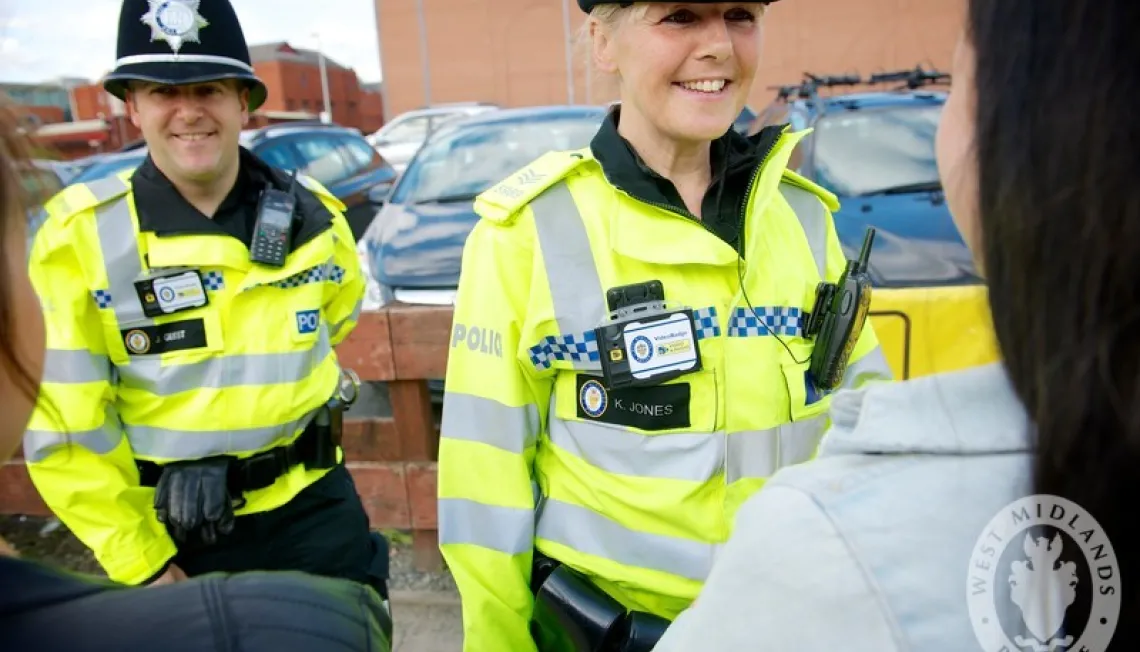We spoke with Inspector Steve Baker, Mental Health and Street Triage lead at Northumbria Police, about two projects, RESPOND and the Street Triage Service, that aim to improve the way the police and other agencies respond to individuals with mental health issues.
RESPOND
RESPOND has been running since 2016 in Northumbria and Steve describes this work as innovative. The work is based on the ‘crisis care concordat’, a national document from 2014. Across Northumbria different agencies/bodies/organisations got together and discussed how they could work in a multi-agency way to address mental health issues. Steve explained they had a regional meeting where reoccurring themes and ideas were discussed. From this, they came up with a new and innovative training programme that is unlike anything else in the country.
The training works by bringing together various representatives from different organisations including the police, paramedics, psychiatrists, AMHP (approved mental health professional) and then an expert by experience (someone who’s gone through a crisis). They are all given a crisis scenario which they have to address by adopting the perspective and stance of someone from a different organisation/background. Crucially, they do not know what each other’s background is.
Steve says it’s a way for several different bodies to get to know each other and see how the others work and what their role/position is in certain crisis situations. Meaning, when it comes to actually working, they can do so cohesively and well. It’s both learning and training. Steve believes it gives partners the opportunity to gain a better understanding of the experiences of other people, especially as there is someone present who has had first-hand experience. It’s a way of keeping people out of the criminal justice system and custody by ensuring the response to mental health crises is more developed.
This training programme is ongoing and has been successful thus far. The London Met are planning to take it on, as is North Wales. Northumbria have copyrighted the concept and have begun to deliver it outside of Northumbria. Initially, funding came from the NHS but now all bodies involved contribute to funding.
Steve explains that funding is an issue and it’s something you have to “keep working” at and focusing on. He also said that within the criminal justice system there really needs to be a better understanding and better knowledge of mental health issues. He says there’s a “real ignorance” in this area as some people should still go through criminal justice processes even if they have mental health issues yet others shouldn’t - the whole spectrum of people needs to be better understood.
Street Triage Service
Steve acknowledged that the mental health street triage service is “far from unique” and that there are five different street triage models that are implemented across the country. However, these schemes are important and are gaining attention and a lot of work is being done to develop them.
The service in Northumbria is delivered across the region, it began in Newcastle and is a collaboration between the NHS services and the police. The street triage was launched in 2014 and was done so to prevent the unnecessary detention/arrest of those who had mental health issues and who would be better served elsewhere, away from both police and the criminal justice system.
Steve explained that this work is important as police time and resources were being wasted. The same faces became recognisable and it was clear that detaining people and seeing people go through the criminal justice system was negative and ultimately, they “don’t want to adversely impact people”.
In 2013 there were, on average, 71 unnecessary detentions a month across the police services. There was a knock-on-effect in terms of detention and the impact it had on both individuals and the police/public services. Following the start of the street triage service the number of detentions has dropped to 13 a month.
The service involves having a nurse and police officer working together on call and on the frontline to address the needs of those with mental health issues properly. They then provide access to clinical professionals and refer individuals to the most appropriate services. Steve said it is not just about “number crunching” and seeing how many people are not arrested or detained but about the “quality of care” and considering the wider impact, work and support surrounding the individual and situation. He reported that, prior to the street triage service, 70% of those who came into contact with the police were taken home and there was no further response, but now 60% are then given tailored support.
He admitted that there has been difficulty in measuring success and outcomes of the triage service with regards to service users as whilst service users are so important, it has proven very difficult to communicate with them about their experiences of the triage scheme and the service itself.
According to Steve, a hugely positive aspect of the service at Northumbria, aside from the support and good quality of care, is the fact that street triage service offices are based next to crisis centres so that a rapport is developed between these different bodies of support.
Steve said he is aware that the West Midlands run something similar but with paramedics and ambulances but that this model was not viable or the most appropriate for Northumbria.
This case-study was compiled and edited by Jaskirat Mann in 2018
